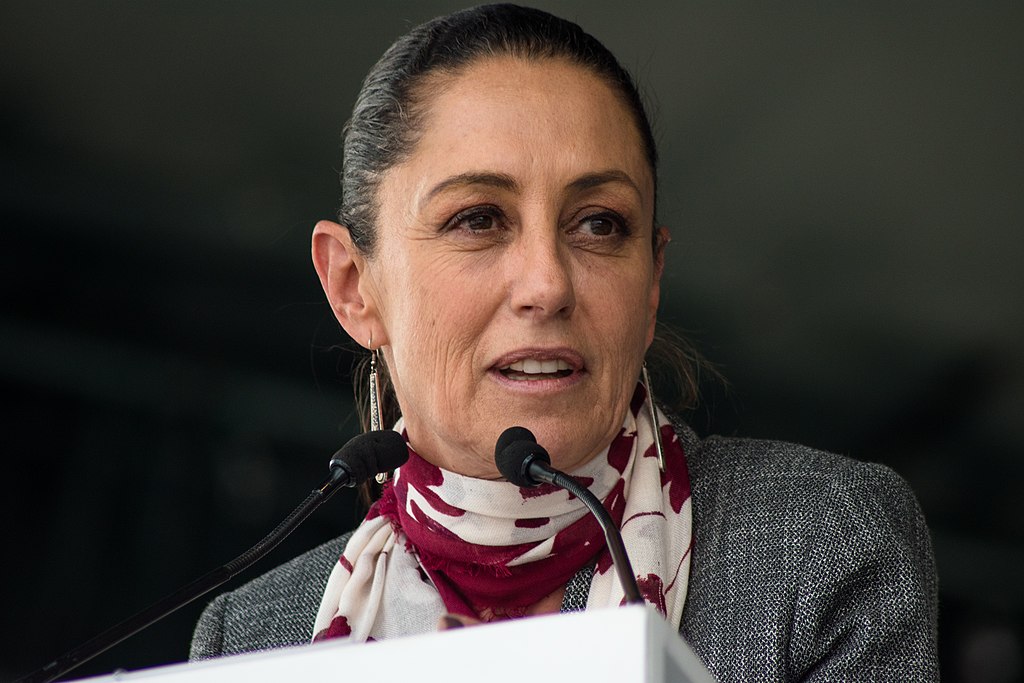Mexican President Claudia Sheinbaum announced retaliatory tariffs after the U.S. imposed a 25% tariff on all Mexican imports, escalating tensions between the two nations. Sheinbaum emphasized Mexico's preference for dialogue but said the country was forced to act in defense of its economic interests.
She instructed Economy Minister Marcelo Ebrard to implement "Plan B," which includes tariff and non-tariff measures targeting U.S. imports. Sources indicate Mexico may impose 5%-20% tariffs on American pork, cheese, fresh produce, steel, and aluminum, while initially exempting the auto industry.
Ebrard condemned the U.S. tariffs as a violation of the U.S.-Mexico-Canada Agreement (USMCA), vowing that Mexico would prevail in the dispute. The U.S. is Mexico’s largest trade partner, with exports to Mexico exceeding $322 billion in 2023, while imports from Mexico totaled over $475 billion. Experts warn that Mexico’s GDP could shrink by 4% in 2025 if the tariffs remain in place.
The U.S. justified the tariffs by citing Mexico’s alleged failure to curb fentanyl trafficking and illegal migration. Sheinbaum rejected these claims, highlighting her administration’s efforts, including the seizure of 20 million fentanyl doses and the arrest of over 10,000 individuals linked to drug trafficking.
Mexico’s ruling party leader Ricardo Monreal called the tariffs one of the most significant economic attacks in the country's history. With nearly a third of Mexico’s GDP tied to U.S. exports, the trade war threatens economic stability for both nations.
As tensions rise, businesses on both sides of the border brace for economic fallout, while Mexico pushes for a resolution that protects its economy and trade partnerships.



 U.S. Announces Additional $6 Million in Humanitarian Aid to Cuba Amid Oil Sanctions and Fuel Shortages
U.S. Announces Additional $6 Million in Humanitarian Aid to Cuba Amid Oil Sanctions and Fuel Shortages  India–U.S. Interim Trade Pact Cuts Auto Tariffs but Leaves Tesla Out
India–U.S. Interim Trade Pact Cuts Auto Tariffs but Leaves Tesla Out  Jack Lang Resigns as Head of Arab World Institute Amid Epstein Controversy
Jack Lang Resigns as Head of Arab World Institute Amid Epstein Controversy  China Warns US Arms Sales to Taiwan Could Disrupt Trump’s Planned Visit
China Warns US Arms Sales to Taiwan Could Disrupt Trump’s Planned Visit  Nighttime Shelling Causes Serious Damage in Russia’s Belgorod Region Near Ukraine Border
Nighttime Shelling Causes Serious Damage in Russia’s Belgorod Region Near Ukraine Border  Japan Economy Poised for Q4 2025 Growth as Investment and Consumption Hold Firm
Japan Economy Poised for Q4 2025 Growth as Investment and Consumption Hold Firm  U.S.-India Trade Framework Signals Major Shift in Tariffs, Energy, and Supply Chains
U.S.-India Trade Framework Signals Major Shift in Tariffs, Energy, and Supply Chains  South Africa Eyes ECB Repo Lines as Inflation Eases and Rate Cuts Loom
South Africa Eyes ECB Repo Lines as Inflation Eases and Rate Cuts Loom  China Extends Gold Buying Streak as Reserves Surge Despite Volatile Prices
China Extends Gold Buying Streak as Reserves Surge Despite Volatile Prices  Singapore Budget 2026 Set for Fiscal Prudence as Growth Remains Resilient
Singapore Budget 2026 Set for Fiscal Prudence as Growth Remains Resilient  Trump Allegedly Sought Airport, Penn Station Renaming in Exchange for Hudson River Tunnel Funding
Trump Allegedly Sought Airport, Penn Station Renaming in Exchange for Hudson River Tunnel Funding  Dollar Near Two-Week High as Stock Rout, AI Concerns and Global Events Drive Market Volatility
Dollar Near Two-Week High as Stock Rout, AI Concerns and Global Events Drive Market Volatility  Trump Allows Commercial Fishing in Protected New England Waters
Trump Allows Commercial Fishing in Protected New England Waters  Gold Prices Slide Below $5,000 as Strong Dollar and Central Bank Outlook Weigh on Metals
Gold Prices Slide Below $5,000 as Strong Dollar and Central Bank Outlook Weigh on Metals  U.S. Stock Futures Slide as Tech Rout Deepens on Amazon Capex Shock
U.S. Stock Futures Slide as Tech Rout Deepens on Amazon Capex Shock  Global Markets Slide as AI, Crypto, and Precious Metals Face Heightened Volatility
Global Markets Slide as AI, Crypto, and Precious Metals Face Heightened Volatility 































